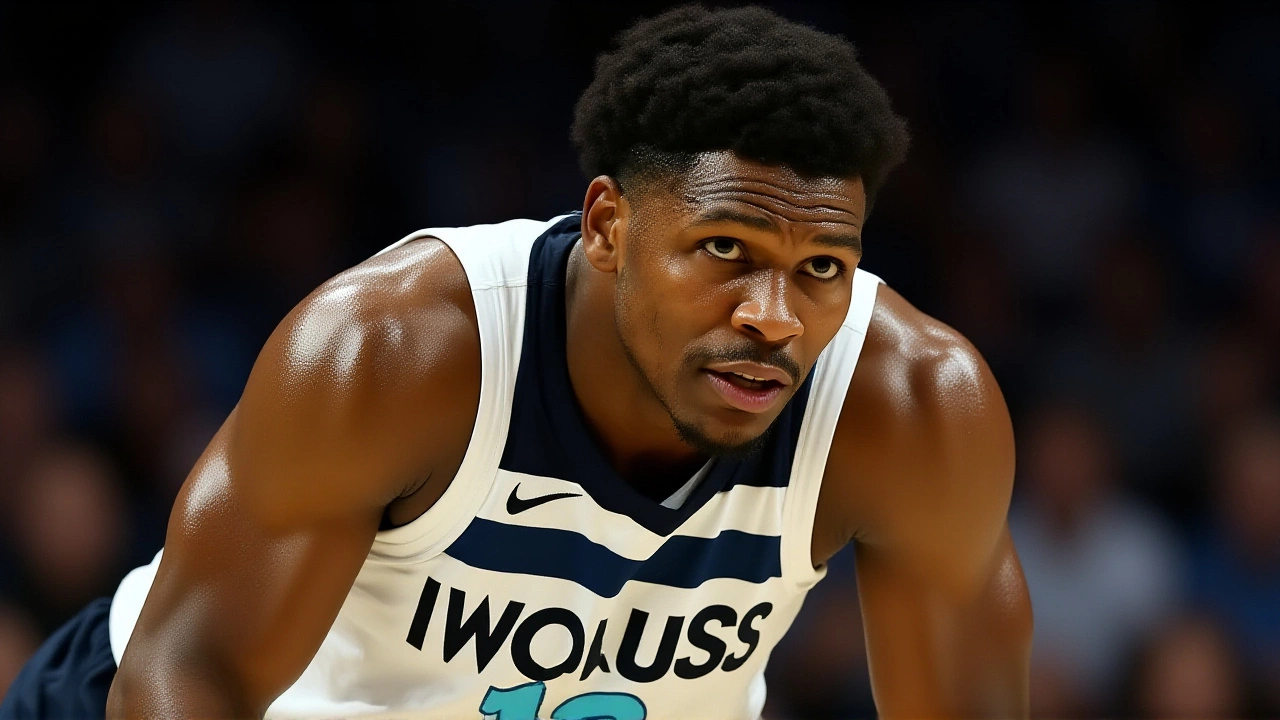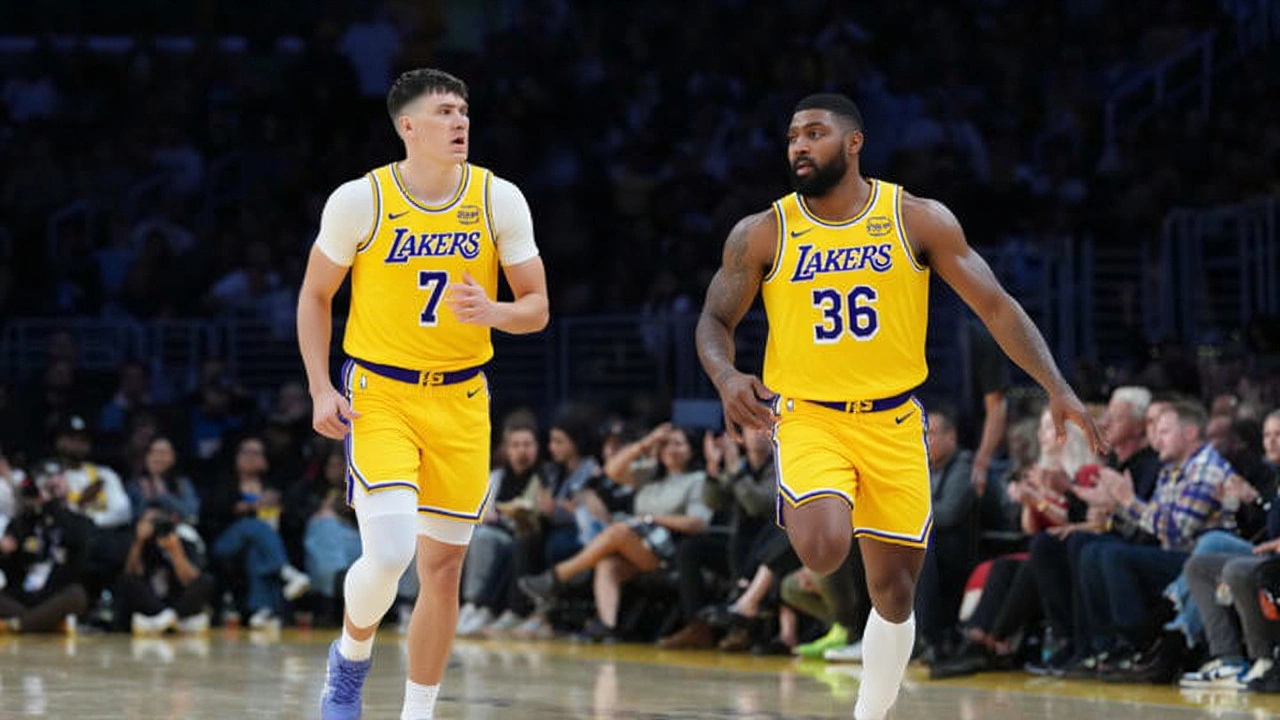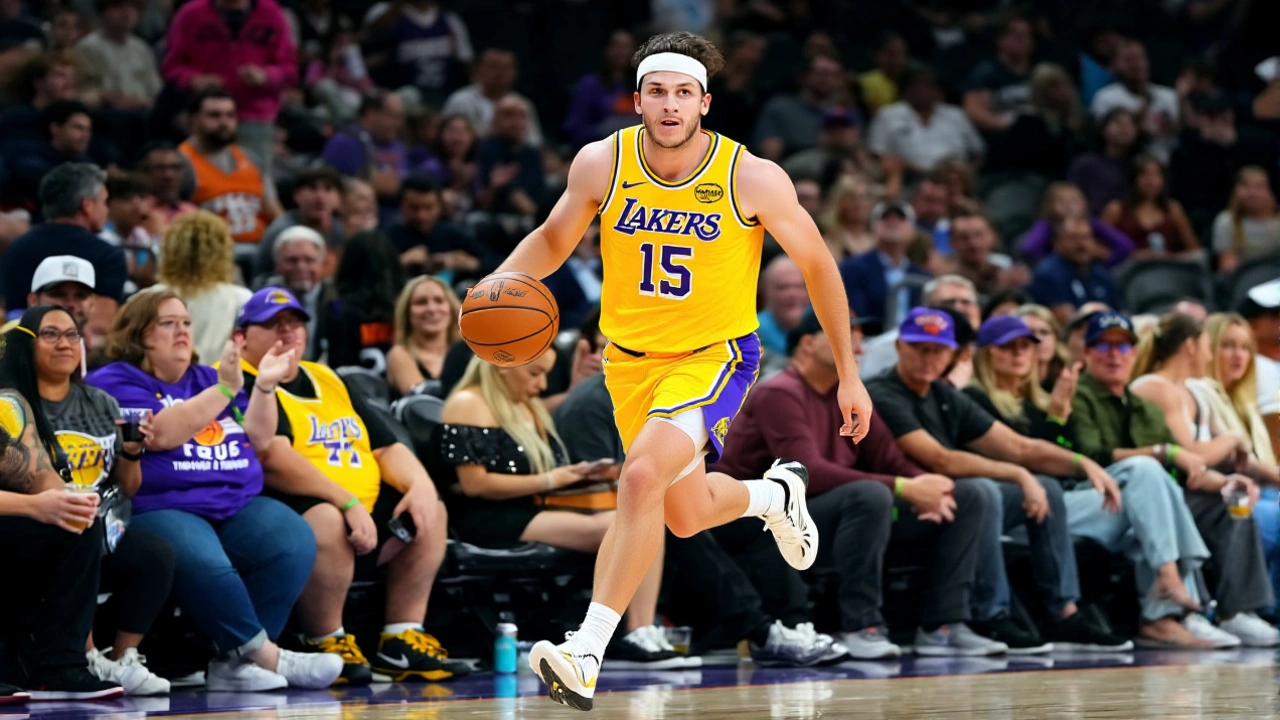With 0.8 seconds left and the Los Angeles Lakers clinging to a one-point lead, Austin Reaves caught the inbounds pass, drove left through traffic, and floated a 12-foot jumper over two defenders — the ball swished through the net as the buzzer sounded. The Target Center fell silent. The Minnesota Timberwolves had blown a 20-point lead. And the Lakers? They walked out with a 116-115 win — their third of the season, and their first in over a week. It wasn’t just a game. It was a statement.
A Collapse in the Fourth
For three quarters, the Lakers looked like the team to beat in the Pacific Division. They led 97-86 entering the final frame, having shot 54% from the field and outrebounded Minnesota by 12. But the fourth quarter? That was a different story. The Timberwolves outscored the Lakers 29-19, turning a double-digit deficit into a one-point lead with 42 seconds left. No one saw it coming. Not the fans. Not the broadcasters. Not even the Lakers’ bench, which had started celebrating their 20-point cushion like it was a playoff clinch.
"The 20-point lead has completely disappeared," said one YouTube commentator during the timeout with 1:12 left. "Timeout, Lakers." And for good reason. The Timberwolves, missing star Anthony Edwards for the second straight game, played with desperation. Mike Conley hit a floater. Nick Smith Jr. found open looks. DeAndre Aton spun past Rudy Gobert for a beautiful turnaround jumper. The energy shifted. The crowd roared. And suddenly, the Lakers — who had looked in control — looked rattled.
Reaves Delivers — Again
But then there’s Austin Reaves.
He didn’t have his best shooting night — he missed his first three three-pointers. But he never stopped moving. He kept attacking. He kept drawing fouls. He kept finding seams. And when it mattered most, he didn’t hesitate. On the final play, with the Lakers down one and only 6.2 seconds left, Reaves came off a screen, got the ball from Dillingham, and attacked the rim. Two defenders closed in. He pulled up. And he didn’t just make it — he made it look easy.
"AR doing what AR does," the highlight commentator said. "Gets into the paint. And all that celebration that the Timberwolves were doing six seconds ago — they’re not doing now."
Reaves finished with 28 points, six assists, and four rebounds — the kind of all-around performance that defines a clutch player. "It’s just simple stuff like that," he said postgame. "But we’ve seen it again and again. Whether it’s on defense, offense. He’s been great in huddles. I see it constantly."

Missing Pieces on Both Sides
The game was defined as much by who wasn’t playing as who was. The Minnesota Timberwolves were without Anthony Edwards, their leading scorer and emotional engine. His absence was glaring — especially in the fourth quarter, when they needed someone to take over. Without him, they relied on role players like Conley and Smith Jr., who did their part — but not enough.
For the Lakers, the absence of Gabe Vincent — sidelined with an ankle sprain for "a couple of weeks," as noted in postgame commentary — left a gap in perimeter defense and ball movement. Still, Reaves stepped into that void. And Dillingham, who had "half of the Laker assists," according to one highlight narrator, became a surprise playmaker.
Even the bench contributions were telling. Larabia made a left-hand layup. Loravia delivered a beautiful, hard-fought finish — then got knocked out in the process. Aima went 2-for-3 from deep. These weren’t star names, but they were the kind of gritty, unsung efforts that win close games.
Standings Shift and Momentum Matters
The win improved the Los Angeles Lakers to 3-2, moving them into second place in the Pacific Division — just one game behind the Golden State Warriors (4-1). For the first time this season, they’re not just chasing. They’re in the conversation.
Meanwhile, the Minnesota Timberwolves fell to 2-3, now three games behind the Oklahoma City Thunder (5-0) in the Northwest Division. Their two-game losing streak raises questions: Can they win without Edwards? Can they close out leads? And more importantly — can they stay relevant in a loaded Western Conference?
This was the second meeting between the teams in six days. On October 25, the Lakers won 128-110 in Los Angeles, with Reaves dropping 25 points and 11 assists. That game felt like a statement. This one? It felt like a survival test. And they passed.

What’s Next?
The Lakers host the Phoenix Suns on Friday. The Timberwolves travel to Denver to face the Nuggets — a tough test without Edwards. If Reaves keeps playing like this, the Lakers might not just make the playoffs — they might threaten for a top-four seed. But if Minnesota can’t find answers on defense, their season could slip away before the All-Star break.
One thing’s clear: in the NBA, leads don’t matter. Only results do. And on Wednesday night, Austin Reaves made sure the Lakers’ results mattered more than anyone expected.
Frequently Asked Questions
How did Austin Reaves perform in the game compared to his previous outing?
Reaves scored 28 points against the Timberwolves on October 29, up from 25 in their previous meeting on October 25. He added six assists this time, compared to 11 in the earlier win, but his efficiency in crunch time was more decisive — hitting the game-winner after missing his first three threes. His ability to create his own shot under pressure has become a defining trait this season.
Why was Anthony Edwards’ absence so critical for the Timberwolves?
Edwards averages 27.3 points and 5.1 rebounds per game this season and is Minnesota’s primary scorer and defensive stopper. Without him, the Timberwolves lost their most reliable late-game option. In the fourth quarter, they struggled to generate high-quality shots, and no one else stepped up consistently — a key reason they blew a 20-point lead.
What does this win mean for the Lakers’ playoff chances?
At 3-2, the Lakers are now tied with the Clippers for second in the Pacific and just one game back of the Warriors. Their ability to win close games — especially on the road — signals they’ve developed resilience. With Reaves emerging as a reliable closer and Dillingham stepping up as a playmaker, they’re no longer just a star-driven team — they’re becoming a contender.
How did the Lakers’ defense change in the fourth quarter?
The Lakers’ defense collapsed in the final 12 minutes, allowing Minnesota to shoot 58% from the field and 6-of-10 from three. They switched too late on screens and failed to close out on shooters. But in the final 30 seconds, they tightened up — forcing a contested inbounds pass that led to Reaves’ opportunity. The difference? Intentional communication, not just effort.
Is this a turning point for the Timberwolves’ season?
It could be. Blowing a 20-point lead — especially without Edwards — exposes a lack of poise and depth. If they can’t close out games against teams without their best player, they’ll struggle to compete in the playoffs. Their next two games, against Denver and Portland, will reveal whether they’re a top-four team or just a flash in the pan.
Who else contributed significantly for the Lakers besides Reaves?
Dillingham was instrumental, recording 11 assists — the most of any Laker — and providing key playmaking when Reaves was double-teamed. Rudy Gobert added 14 rebounds and three blocks, while Jake hit a critical three-pointer late to keep the lead. Their collective effort kept the Lakers alive until Reaves delivered the final blow.
